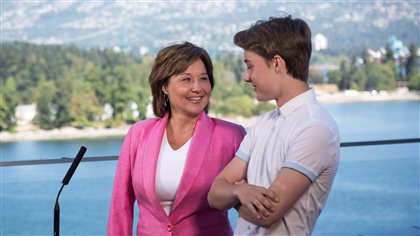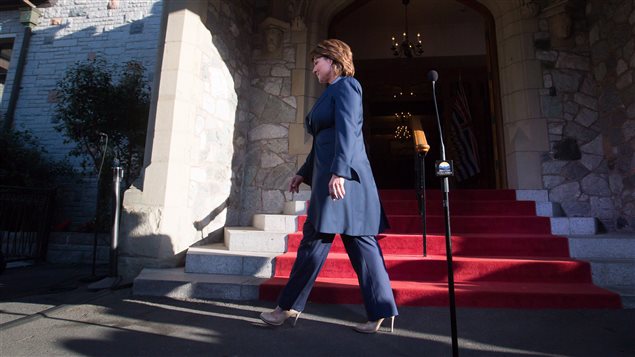Christy Clark, the former Premier of British Columbia, is leaving politics.
“I am done with public life. Politics isn’t a happy job. It’s not a fun job, really. It’s a fulfilling job and it’s really interesting and I loved doing it.” Clark told the assembled reporters at her final press conference on Monday in Vancouver.

Following the historic outcome of the May 9th provincial election and the days of uncertainty following it, as absentee ballots and recounts were conducted, Clark attempted to stay on.
What might have been a minority government, with the Liberals taking 43 seats, just one less than the 44 required for a majority, got derailed when the left-leaning New Democratic Party, with 41 seats, formed a coalition with the Green Party, taking their three seats, for a one-seat advantage.
“British Columbia is a very polarised society”
As a result of a confidence vote, Lieutenant-Governor Judith Guichon asked the New Democrats to form a new government with Green support, and did not take Clark’s suggestion of calling another election.
John Horgan is now Premier and the Liberals are in opposition for the first time in 16 years.
Professor Nelson Wiseman, director of the Canadian Studies program in the Political Science department at the University of Toronto, says there were several elements in this defeat, but part of it was voter fatigue.
“You’ve got the appetite of people to change horses after one party, or one premier’s been in power too long.”
ListenBut Wiseman says there were other factors, including the venerable New York Times referring to British Columbia’s political landscape as “the wild west” due to the lack of regulation in its system of party financing.
“And let me tell you Canadians are very sensitive to what Americans, and especially The New York Times, says about them.”
And then there is the social reality in the province. “British Columbia is a very polarized society” Wiseman explains.
“So while Clark has been on the bandwagon for pipelines, for the mining industry, for the extractive industries, a large part of that population, especially in the lower mainland and Vancouver Island, opposes that orientation, so those people were voting against her.” he says.
“She’s been premier for most of my life that I can remember, so I think it’s going to be an interesting change”
The Green Party, who increased their presence in parliament from one to three seats, the most in any Canadian election, chose to go with the NDP.
Rich Coleman, the former deputy premier, is now the interim leader for the B.C. Liberals.
And as for Clark, she told reporters on Monday she plans on doing some gardening and helping her son with his homework.
Ms. Clark’s teenaged son, Hamish, who stood with his mother during the press conference, shared his view of the developments.
“She’s been premier for most of my life that I can remember, so I think it’s going to be an interesting change,” he said.
Professor Wiseman says she may not have that much time for gardening as the recent trends suggest she’ll be hired by a law firm to add some star-power to their ranks.
(With files from CBC)







For reasons beyond our control, and for an undetermined period of time, our comment section is now closed. However, our social networks remain open to your contributions.